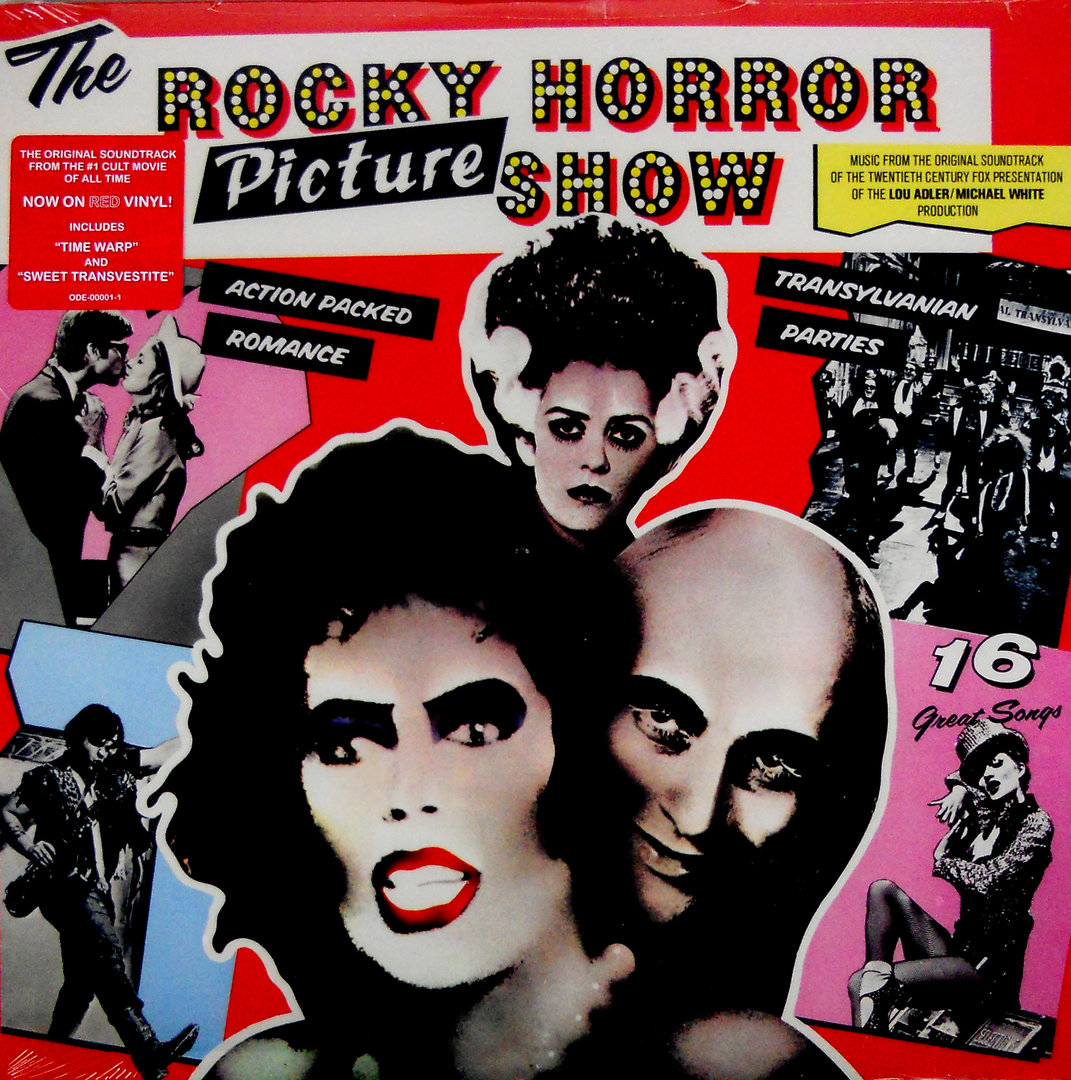Happy Halloween! Chris Feil's look at music in the movies takes on the genre-bending musical classic...
 The Rocky Horror Show is a peculiar kind of musical. Quickly dismissed on the stage, it will always be more at home in the cinema, adding Picture to the title and thus embodying its B-movie inspirations. With its notorious run from flop to cult sensation to now subdued midnight ritual, this musical belongs to the masses in a way unlike any other. But weirdly the music itself feels tangential to the cultdom - isn’t it strange that one of the most famous musicals is seldom celebrated for the music itself?
The Rocky Horror Show is a peculiar kind of musical. Quickly dismissed on the stage, it will always be more at home in the cinema, adding Picture to the title and thus embodying its B-movie inspirations. With its notorious run from flop to cult sensation to now subdued midnight ritual, this musical belongs to the masses in a way unlike any other. But weirdly the music itself feels tangential to the cultdom - isn’t it strange that one of the most famous musicals is seldom celebrated for the music itself?
Or maybe if any of the songs themselves are cherished, it’s the worst number in the lineup. Come now, you know that “The Time Warp” is Rocky Horror’s worst song. I know it, you know it, we all know it (The banister knows it!)...
What even is this supposed line dance from space? Broken down, it’s essentially a herky jerky air hump. At best what it does capture is the musical’s earnest silliness and anarchic means of having a good time, and that’s likely why it carries the most pop culture cachet.
Is that because Rocky Horror’s music is one of it’s least transgressive aspects? It did come at a time when musicals were just beginning to stray from the prim and proper, so you can’t solely blame kinkiness or rock and roll. Hair shocked audiences with frank sexuality and Andrew Lloyd Weber continued its rock opera influences with Jesus Christ Superstar, but Rocky Horror was significantly odder than either of those. So it’s easy to understand how Broadway wouldn’t have been so taken by this naughty, but unambitiously tuneful pop - something like “Touch-A, Touch-A, Touch Me” is randy all right, but mostly defined by its harmless charm.
Which is neither to ignore the score’s rampant sexuality or dismiss it as a trifle. Most of these songs are ferociously underrated in the musical theatre sphere, like the guignol emotion of “Over at the Frankenstein Place” and the abandon of “The Floor Show”. Perhaps it is also that there’s something about this version that is treated as untouchable, with revivals and revamps received to only middling results. For some reason, unlike other hugely popular musicals of yesteryear, the music is what gets lost when this original is so revered.
Iconography like Tim Curry’s Dr. Frank-N-Furter is certainly intimidating, however. Rarely does a musical performance come along that is declared so definitive that it casts a shadow not only over the new performer, but the production entire. Extracting him from Rocky Horror is as impossible as eliminating sex, especially his vocal interpretations. You could take “Sweet Transvestite” into any of the extremes of his amalgam of influences - Mick Jagger, Tina Turner, aristocracy - and it just wouldn’t be right. With the raise of an eyebrow or nod of the hip, he is able to take what is transgressive and deeply appealing about Rocky Horror and completely tilt its axis. And ours.
It’s worth noting that Rocky Horror’s blend of genres also makes it a hard feat to pull off, along with the score’s use of rock and roll melodies both contemporary and from the formative 50s. It’s as much of an ecstatic release as musicals should be, but its varied and quite specific references make for a house of cards that never stacks up as strongly as the film. But what is still standing are some undervalued songs that still stir a crowd to dress up (or down), be free, and yes, do the Time Warp.
Previous Soundtracking Favorites:
Big Mouth
The Lure
Evita
Blue Velvet
The Adventures of Priscilla, Queen of the Desert
...all installments can be found here!